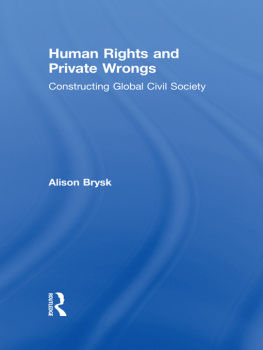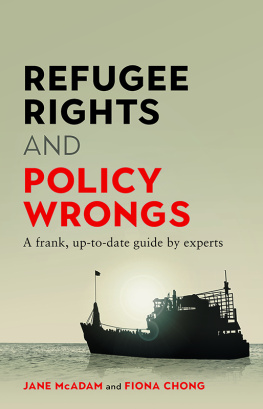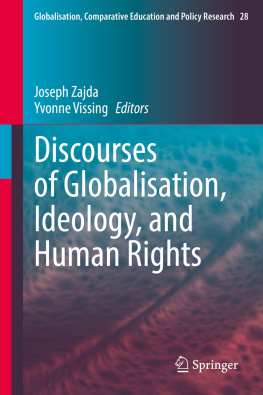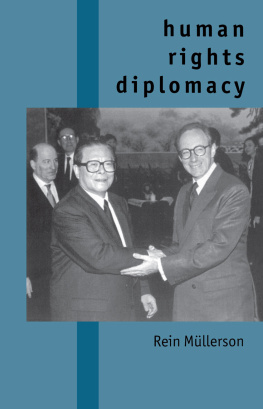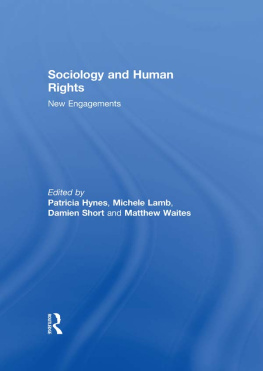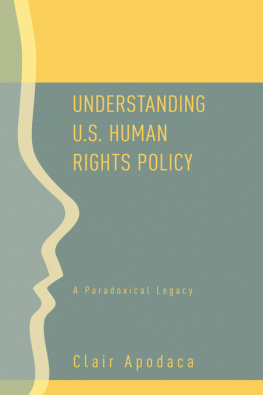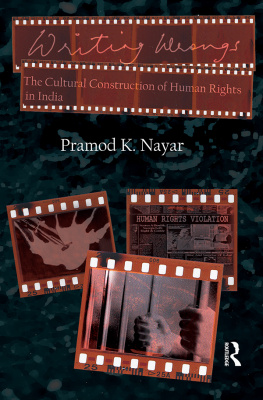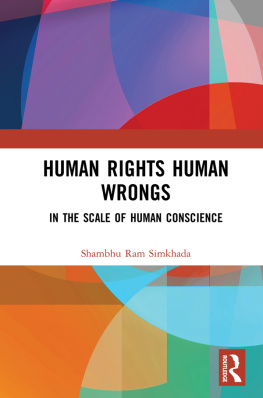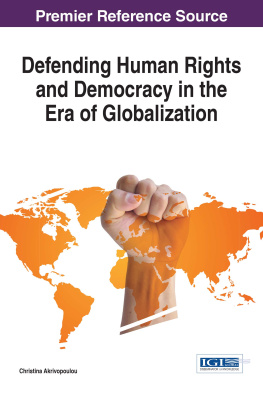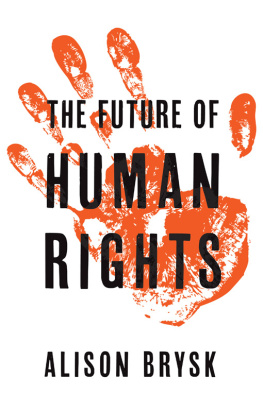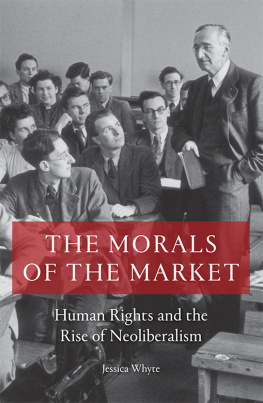Human Rights and Private Wrongs
Other titles in the Global Horizons series, edited by Richard Falk, Lester Ruiz, and R.B.J. Walker
International Relations and the Problem of Difference
Naeem Inayatullah and David L. Blaney
Methods and Nations: Cultural Governance and the Indigenous Subject
Michael J. Shapiro
Bait and Switch: Human Rights and U.S. Foreign Policy
Julie A. Mertus
The Declining World Order: Americas Imperial Geopolitics
Richard A. Falk
Human Rights and Private Wrongs
Constructing Global Civil Society
Alison Brysk
ROUTLEDGE NEW YORK AND LONDON
Published in 2005 by
Routledge
711 Third Avenue
New York, NY 10017
www.routledge-ny.com
Published in Great Britain by
Routledge
2 Park Square
Milton Park, Abingdon
Oxon OX14 4RN
www.routledge.co.uk
Copyright 2005 Taylor and Francis Books, Inc.
Routledge is an imprint of the Taylor and Francis Group.
All rights reserved. No part of this book may be printed or utilized in any form or by any electronic, mechanical or other means, now known or hereafter invented, including photocopying and recording, or any other information storage or retrieval system, without permission in writing from the publisher.
Library of Congress Cataloging in Publication Data
Brysk, Alison, 1960
Human rights and private wrongs : constructing global civil society/Alison Brysk.
p. cm.(Global horizons)
Includes bibliographical references and index.
ISBN 0-415-94476-7 (hb : alk. paper)ISBN 0-415-94477-5 (pb : alk. paper)
1. Human rights. 2. Globalization. 3. International agencies. 4. Civil society. I. Title. II. Series.
JC571.B756 2004
323dc222004011027
To Ana, who has taught me boundless compassion and to think outside the box
Contents
| Chapter 1 |
| Chapter 2 |
| Chapter 3 |
| Chapter 4 |
| Chapter 5 |
| Chapter 6 |
Preface
I wrote this book because I was puzzled and disturbed by daily reports of abuses that seemed to add up to a new genre I could not name or analyze. My first project on human rights reform in Argentina had acquainted me with the classic pattern of state-sponsored violations and (largely) national response, still all too commonbut increasingly understood and theoretically manageable through the international human rights regime. My subsequent work on indigenous peoples expanded my knowledge of global sources of both abuse and response, but the baseline for rights and reforms was still the national government, and a transnational version of the human rights repertoire still seemed to be (somewhat) effective.
By the turn of the millennium, globalization seemed to permeate every issue I researched, taught, or read about, and the human rights impact of globalization had become a focus of worldwide debate and protest. Seeking to map the contours of this tectonic shift, I called on the collective wisdom of colleagues, through a series of conferences that resulted in edited volumes. The issues that haunted me at these conferences, such as trafficking in children, seemed to affect the most vulnerable groups and clearly violated the victims, yet they were issues we could barely discuss with the scholarly, legal, and policy vocabulary of human rights developed to restrain states from abusing their citizens. My colleague Jack Donnelly adumbrated the agenda for this project at the January 2000 conference on Globalization and Human Rights; commenting on my persistent concern with accountability for nonstate actors, he said the question I kept asking waswho ya gonna call?
As I began to research this question, I felt like an epidemiologist trying to tease a pattern from widely scattered reports of similar symptoms from primary care activists, journalists, and case studies. I consulted the work of specialists in the well-known pathologies of repression, as well as more fundamental anatomies and physiologies of civil society and globalization, seeking to contribute to a deeper understanding of contemporary suffering.
Like the scholars of our eras medical plagues, I have found a mix of chronic infirmities and new pathogens, new routes of transmission for both, clusters of co-occurring maladies, and the promise of new treatments blunted by the emergence of conditions resistant to governance. And just as many analysts of public health problems come to advocate similar structural changes to ameliorate a wide spectrum of disorders, my study of global private wrongs suggests that a world order that supports human dignity at all levels will be mutually reinforcing.
The bad news is that poverty, repression, failed states, and distorted globalization all go along with private wrongsand in many cases, progress on private wrongs will depend on difficult changes in these parameters. But the good news is that under more mixed conditions, changes in one area can support progress in others. For example, international programs to improve childrens education can help struggling but willing states to decrease trafficking, improve family incomes and access to health services, and attract more constructive forms of foreign investment. Across the spectrum of private wrongs, greater monitoring of abuses, accountability for violators, and empowerment of victims can make a differenceand transnationalism can contribute positively to all of these aspects of change.
My research, teaching, study, and personal experience have taught me a template for personal and political change that frames the message of this study. Change begins with awareness. Awareness must be followed by compassion. But effective compassion must be matched by judgment. This book tries to supply awareness and analysis. The compassion of the reader can take the next stepturning knowledge into wisdom through action.
Acknowledgments
This study would not be possible without a wide range of intellectual, academic, personal, and even financial support. I am immensely grateful for the contributions of the following persons and institutionsthey share in the projects merits and are absolved of its defects.
An earlier version of Chapter 2 was presented at the 2002 Conference on Transnational Dynamics and the Emerging Architectures of Governance hosted by the John Kennedy School of Government, Harvard University and benefited from the comments of participants. A prior draft of Chapter 3 appears in my volume coedited with Gershon Shafir, People Out of Place (Routledge 2004), and was stimulated to further development by the suggestions of my coeditor. Chapter 4, Follow the Money, also appeared in an earlier incarnation as an eponymous Working Paper of the Global Peace and Conflict Center at the University of California, Irvine. Timely support for research on financial accountability was provided by the Global Peace and Conflict Center. Our Bodies, Ourselves was presented at the 2004 International Studies Association, Montreal, at a very useful panel on Rights on the Rise: How and Why New Human Rights Issues Emergediscussions during and following helped to refine that chapter.
My understanding of the private wrongs chronicled in this book was constructed with the help of a series of research assistants at UC Irvine. Celine Jacquemin assembled prodigious resources on socially responsible investment. Tanaz Korami, Rebecca Griffin, Michael Struett, and Jaime Carrillo assisted with Children Across Borders. At a deeper level, Professor Henry Greely of Stanford Law School very generously shared his time and research to improve my understanding of the complex field of genetic research.

